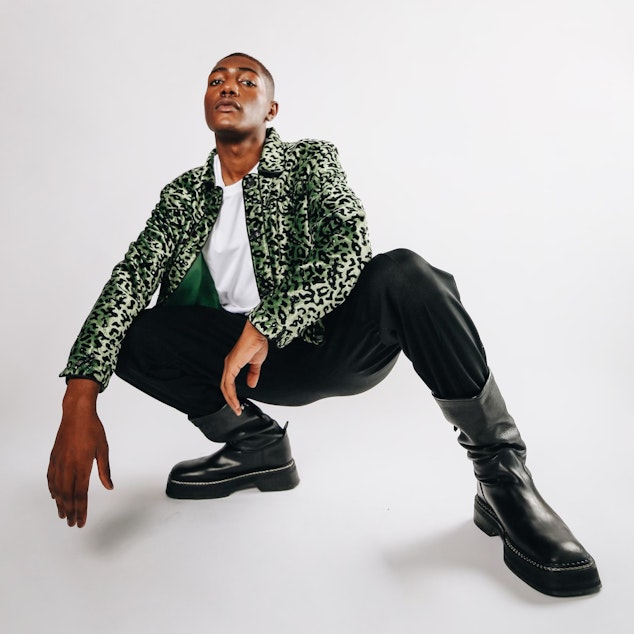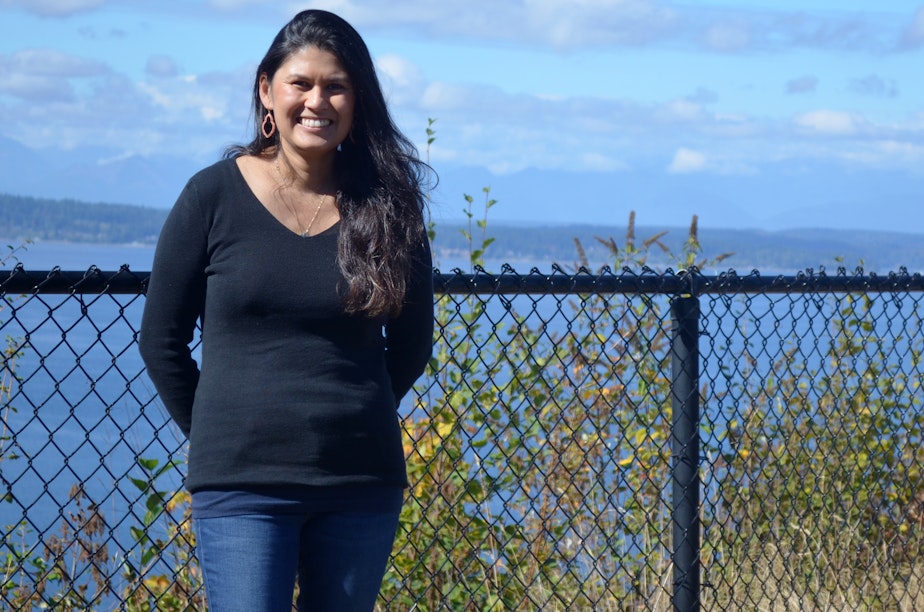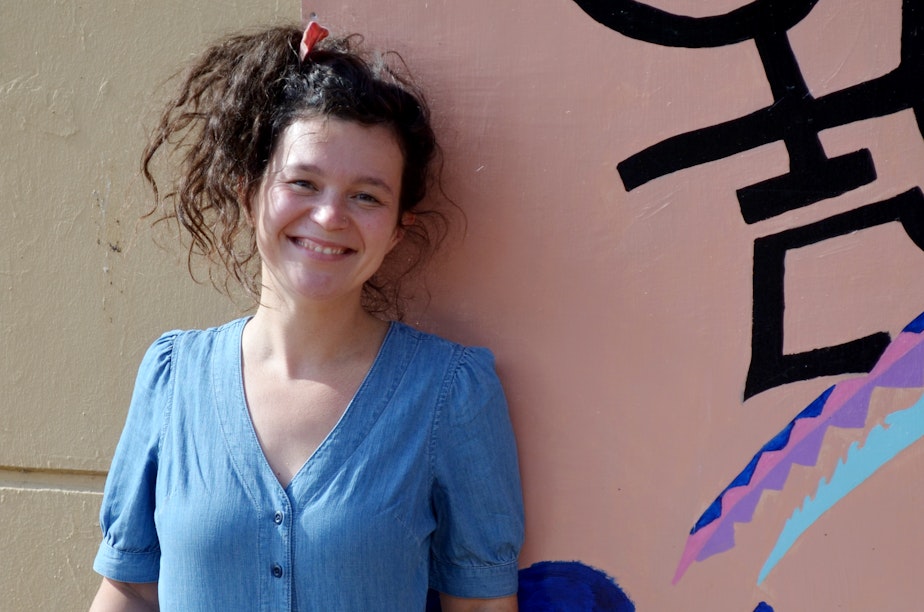Overwhelmed with the return to school, Seattle teens are withdrawing into their cocoons
Educators hoped being back in classrooms would be positive for teens — but it’s not so straightforward.
RadioActive youth producer Ruby Lee is a junior at Rainier Beach High School. She talked with her peers about how the return to in-person learning is going — especially for student leaders.
I
’ve been going to school for almost my entire life. But after a year and a half of online school, I feel like I’ve forgotten how to do it.
Socializing after being isolated for so long is hard. Most of the time, I’d rather just cocoon myself and drown it all out. And I’m not the only one.
My friend Thomas Foster is a senior at Rainier Beach High School. We have film class together, and we both love coming to school wearing eccentric outfits. He’s been the president of his class all four years of high school. So he’s not exactly shy.
But even Thomas is feeling overwhelmed by the return to in-person school.
The pandemic “has jaded everyone a little bit,” Thomas told me in an interview. “It's made everyone feel a little bit more inclined to just keep to themselves every day. To zone in to themselves, instead of exerting energy into everybody else.”

Thomas lives with his brother, his mom, and his grandma. With a full house during the pandemic, he says he retreated into himself— into his headphones, music and online communities.
“Living with my family 24/7, you just had to learn to zone out,” Thomas said.
I’m hearing that a lot from my friends. To make it through the past 18 months, we all learned to zone out.
Now that we’re back in school, it’s hard to unlearn.
“It's kind of like, I'm here. I'm happy I'm here. But am I really here? It feels like I've been in a Sims 4 game,” Thomas said. “I'm coming to school, I'm doing my tasks, but there isn't that sense of urgency that I used to have for school. It's not the 10th grade Thomas anymore.”
Adolescent psychologist Lizz Dexter-Mazza said it’s no surprise teens are finding it hard to reconnect.
“Some kids are still like, 'I was really comfortable on my own. I don't want to be connected,'” Dexter-Mazza said. “So we have to find ways to bring them in.”

Dexter-Mazza’s own son just started high school. He went to his first cross country meet recently.
“And I was like, “Alright, you'll ride the bus. And that's a great time to kind of get to know and talk to the other teammates,” Dexter-Mazza said. “And when I asked him about it afterwards, he's like, ‘Everybody was on their phone; nobody talked.’ And I was like, ‘Oh, right, because it's so easy to disengage, rather than manage any little bit of anxiety.’”
Dexter-Mazza said the stakes are high for teens this fall. Anxiety, depression, and substance use among teens increased 30% during the pandemic.
She said the only way out is for young people to recover their sense of community and belonging.
“After forced isolation, the anxiety and depression and mental health difficulties that people experience last up to seven years,” Dexter-Mazza said. “We're going to be dealing with the ramifications on the emotional health of our adults and our kids for a long time.”
Back at Rainier Beach, Thomas said that as a senior and student leader, he feels like it’s his job to rekindle the sense of togetherness and school spirit students used to have.
“I feel the weight of everybody's anxiety,” he said. “And everybody's weight of ‘What are we supposed to do next?’ and ‘How are we supposed to go from here?’ And I felt like if I didn't do anything to help, I wasn't doing my part.”
Thomas leans on Annie Dugas — we call her Ms. Dugas. She teaches 9th grade language arts, and she supports student leaders like Thomas who feel pressure to create the best year ever for their peers after all the time away.

Ms. Dugas is trying to help her students recognize and manage their anxiety. But, she said, the return to school hasn’t been all bad.
“I have noticed kids laughing and spending time together and getting excited about having classes and going to lunch,” she said. “And I do think there's some excitement for thinking creatively and outside the box to create experiences.”
Sponsored
When we left our high schools in March 2020, we were looking forward to a two week break.
Now, coming back into school buildings after almost two years, everyone is learning how to navigate this enormous change. And it looks different for each of us.
I’m pushing myself to come out of my cocoon while still knowing my capacity and caring for my mental health.
And I wonder if this year will end up being just a blip in time, or if it will change schooling forever.
---
This story was co-reported and co-produced by Eilís O’Neill and RadioActive Youth Media. Production support by Kelsey Kupferer.
If you have any feedback on this story, simply click the blue feedback tab on the edge of this page. Reach out. We're listening.




